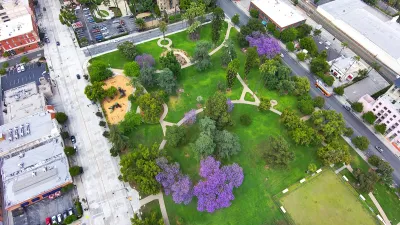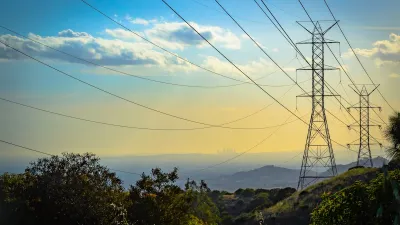The recent LA wildfires have devastated parks and trails, with recovery efforts requiring extended closures, collaborative restoration plans, and community support to address extensive damage and long-term risks like landslides.

The recent wildfires in Los Angeles have devastated some of the region’s most beloved parks and trails, leaving a mix of hope and uncertainty for recovery. While LA City parks are expected to reopen soon, visitors are advised to wear masks due to unhealthy air quality. In contrast, LA County trails and about 20 parks remain closed, with extensive damage reported in areas like Eaton Canyon and the Pacific Palisades. Tragically, the Eaton Canyon Nature Center and several other park structures were destroyed, adding to the community’s sense of loss. (The LA County Parks Foundation is accepting donations to help restore the Eaton Canyon Nature Center.)
As reported by Ashley Orona, officials face significant challenges in assessing the full scope of the damage, as some fire-affected areas remain unsafe to access. Beyond visible destruction, concerns about landslides and debris flow threaten the region, particularly as the loss of vegetation destabilizes hillsides. Recovery efforts will involve collaboration among various agencies to develop plans that prioritize safety and environmental healing. In some cases, trails may remain closed for extended periods to allow nature to recover, mirroring strategies used after previous fires.
Community groups like We Explore Earth are stepping up to assist in restoration efforts, mobilizing volunteers and gathering resources to support the healing process once it is safe to do so. Their commitment reflects the profound connection many Angelenos feel toward these natural spaces, emphasizing the importance of collective action in restoring the parks and trails as well as the sense of community they inspire.
FULL STORY: Some LA parks are reopening. For others, it’s a long road to recovery.

Alabama: Trump Terminates Settlements for Black Communities Harmed By Raw Sewage
Trump deemed the landmark civil rights agreement “illegal DEI and environmental justice policy.”

Planetizen Federal Action Tracker
A weekly monitor of how Trump’s orders and actions are impacting planners and planning in America.

Why Should We Subsidize Public Transportation?
Many public transit agencies face financial stress due to rising costs, declining fare revenue, and declining subsidies. Transit advocates must provide a strong business case for increasing public transit funding.

Understanding Road Diets
An explainer from Momentum highlights the advantages of reducing vehicle lanes in favor of more bike, transit, and pedestrian infrastructure.

New California Law Regulates Warehouse Pollution
A new law tightens building and emissions regulations for large distribution warehouses to mitigate air pollution and traffic in surrounding communities.

Phoenix Announces Opening Date for Light Rail Extension
The South Central extension will connect South Phoenix to downtown and other major hubs starting on June 7.
Urban Design for Planners 1: Software Tools
This six-course series explores essential urban design concepts using open source software and equips planners with the tools they need to participate fully in the urban design process.
Planning for Universal Design
Learn the tools for implementing Universal Design in planning regulations.
Caltrans
Smith Gee Studio
Institute for Housing and Urban Development Studies (IHS)
City of Grandview
Harvard GSD Executive Education
Toledo-Lucas County Plan Commissions
Salt Lake City
NYU Wagner Graduate School of Public Service





























